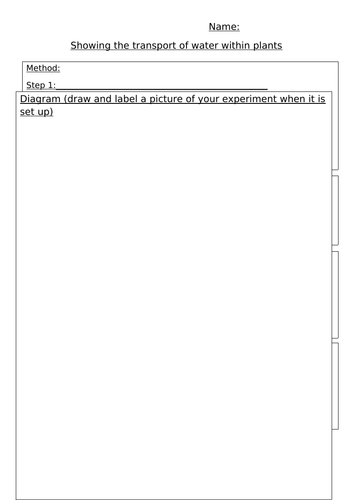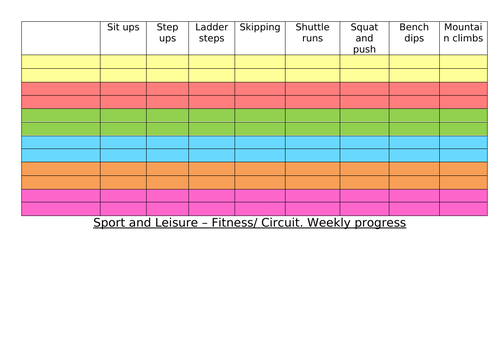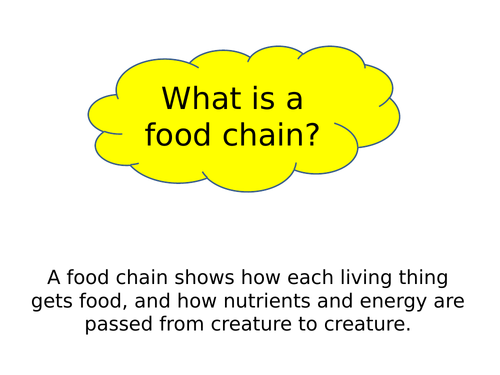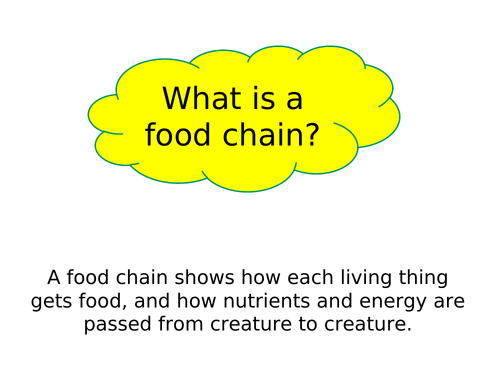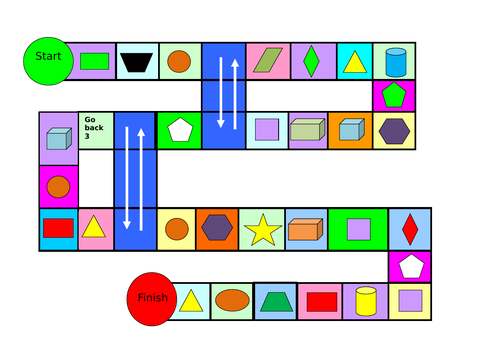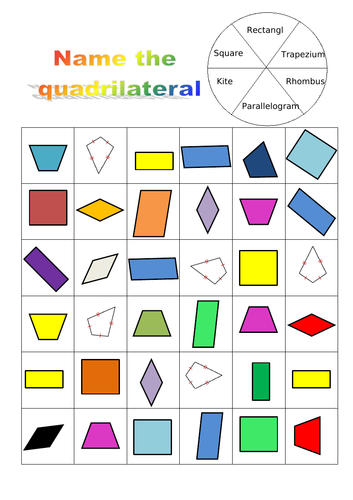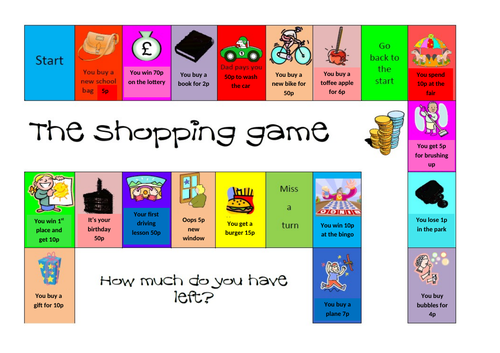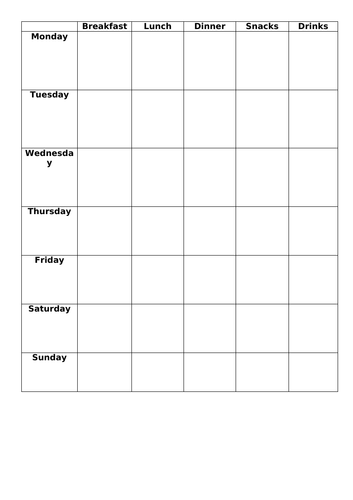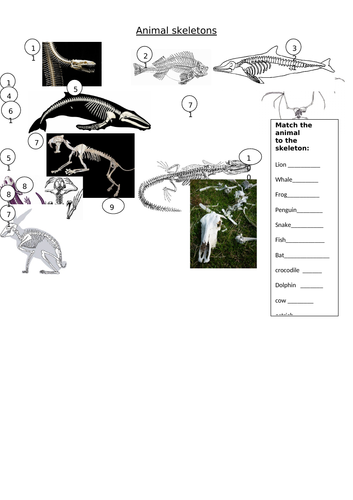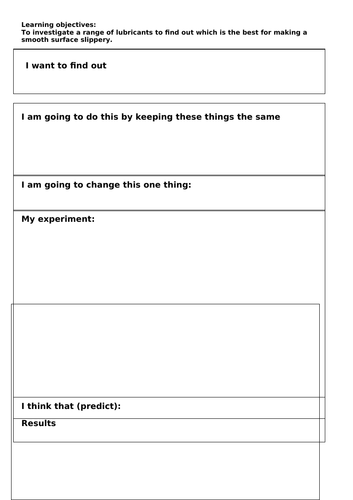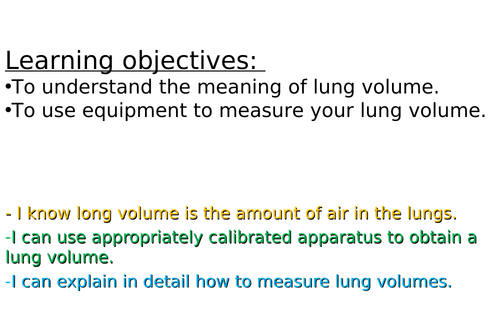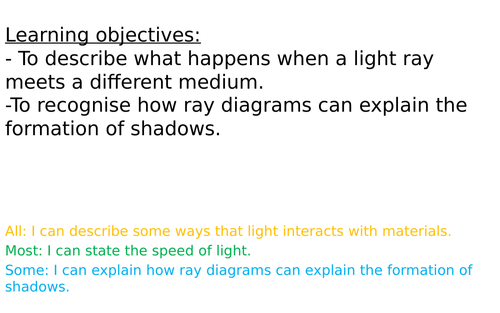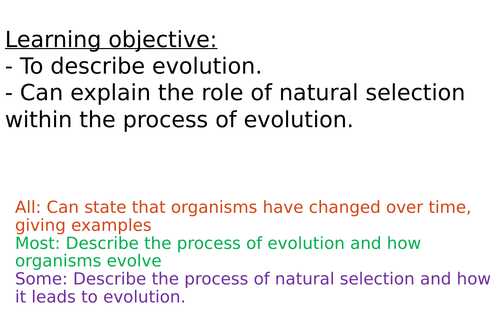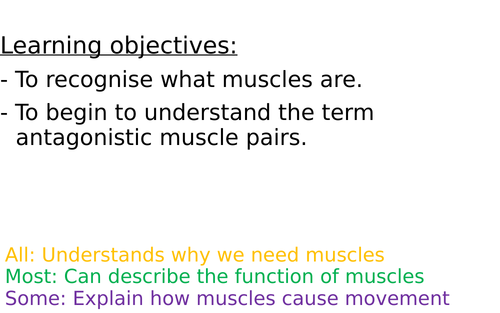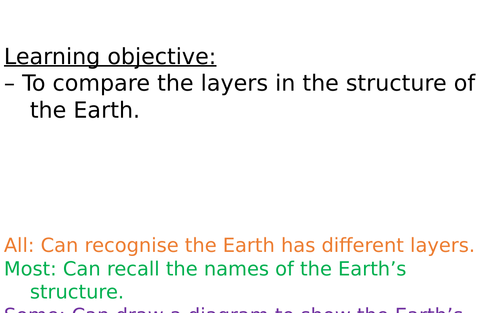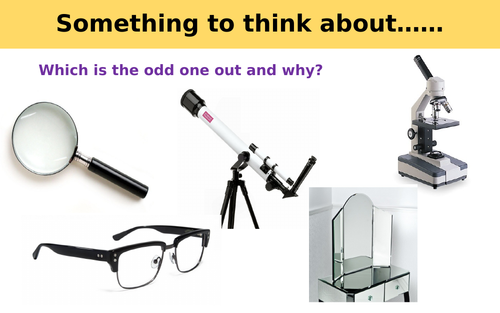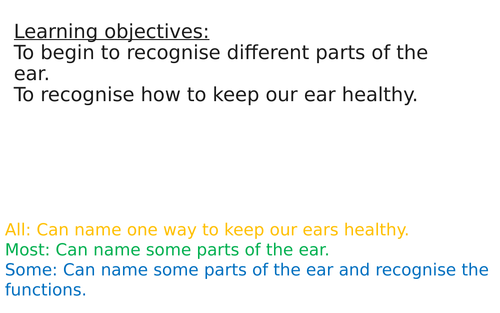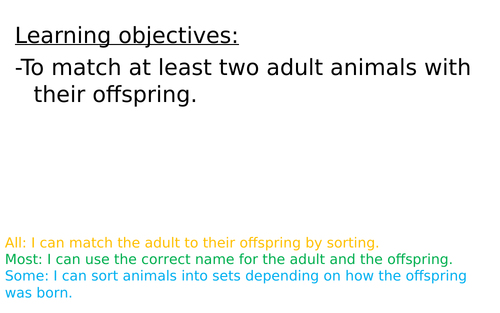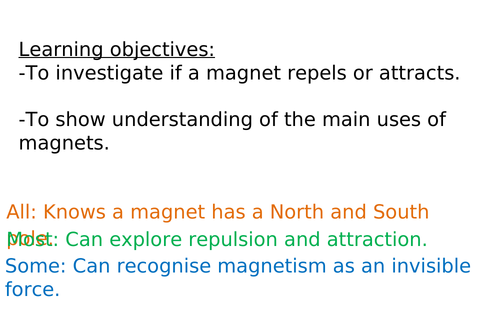
41Uploads
11k+Views
451Downloads
All resources

Water transportation experiment
A planning sheet to show water transportation using food colouring. Students can set out their own work correctly in a step by step process by using this sheet.
2 sided planning sheet.
Food colouring water transportation.
Investigation:
Food colouring, a white flower, boiling tube and water. The stem of the flower will soak up the food colouring and change the colour of the petals.
Works best with white petals and dark food colouring.

Fitness - circuit fitness progression chart
Students to work in partners for a 4 week period, recording their fitness gains on a week by week progress. Students should show progress over 4 weeks; as they are aware of their previous scores students build up stamina and strength as they progress in their physical education ability.

What is a food chain?
A lesson complete in Science; students learning about different animals and which animals like to eat other animals. Show examples of different food chains and helps students to create their own food chain.
Can easily create class discussions as well as students being able to openly talk about animals and what they already know.

Food chains - producers, consumers and decomposers
A lesson PowerPoint discussing the meaning of food chains, a definition of key words of the topic - consumers, producers, decomposers, herbivores, carnivores and omnivores. Students at the end of the lesson will be able to create their own food chains and show the different key word for each organism.

Name the shape game
A great game to begin to learn the name of basic 2D and 3D shapes.
Students will need to follow the the game board; they will roll a di and which ever number it lands on this is how many squares they will move. Once they have rolled and moved their counter they will need to name the shape. If you get the name correct you can stay on this square, if you incorrectly name the shape you must go back to the square you can from.
Interact game to be played in a small group at school or a family game to play at home - a fun maths game!

Name and recognise the quadrilateral game
Students to work in small groups or with partners to play the game. The game focuses on a range of different quadrilateral shapes (shapes with 4 sides); Students to either roll the di or use a spinner on the spinning wheel at the top, if using a di the spinning wheel at the top will need labelled with the numbers 1-6.
Students will either roll their di or spin a spinner and which ever shape name it lands on they will then cover this with a counter.
For example:
If the spinner lands on rectangle the student will need to look for the shape which is a rectangle and cover this over.
If there if no more rectangles available then the students would not cover a shape. Once all shapes are covered the student which covered the most shapes wins the game.

Shopping money game - Coin recognition
Game to be played in a small group - great for learning and understand money for a variety of ages and also a fabulous resource to encourage coin recognition.
Game can either be played with plastic coins or real money for a chidlren’s money box or spare change jar. Each player will start with £1.
The game involves counting money through giving and receiving. All players must start on the start square; when it is your turn you will roll a di and move the amount of spaces on the game board. You must read what the square says and follow the instruction e.g. you spend 10p at the fair; if you land of this square you would count out 10p through coin recognition and give the money to a player of your choice.
The person at the end of the game with the most amount of money will win.

Food diary or log
A easy weekly food diary to record and log the different food, drinks and snack you consume within a week.
This food diary is simple for students to use to understand their food and drink intakes - this log can help students to control their eating habits; as well as being expanded upon to understand different food groups, balanced diets, food/ calorie intakes.
Student have found this log enjoyable and allows them to understand they make be over or under consuming each week.

Spellings- look, cover, write sentences
A spelling resource used for a range of different age groups depending on spelling ability.
The pack would last for 6 weeks, with a new set of spelling being learnt on a weekly basis. Students are required to write their spellings out at least 3 times to begin to understand the spelling, students may wish to decode and break down the word into different phonics sound to support their spellings.
Once students have practiced writing the word then they will need to write these words into sentences - this will allow students to understand the word in different contexts.

Animal skeletons
A worksheet designed around animal skeletons. The pictures used are a range of real life examples as well as designed versions; this allows students to understand and see examples of different forms of media; but also allows them to see real life skeleton bones which they may not have done before.
The first activity is a matching activity to match the skeleton with the name of the animal.
Activity 2 - research the different between invertebrates and vertebrates. Students may use the internet or books to form their answers and to understand the differences.
Activity 3- Students can either research or use their own knowledge to think about different animals which may or may not have a backbone.

Energy transfer - KS3 Activate Science
A unit worth of powerpoints including main points of discussions, starters and some suggested activities.
Energy transfer - KS3 activate
Planning used with SEN KS3 students, also suitable for mainstream students.

Breathing - KS3 Science Activate
A unit worth of powerpoints including main points of discussions, starters and some suggested activities.
Breathing - KS3 activate
Planning used with SEN KS3 students, also suitable for mainstream students.

Light - KS3 Activate Science
A unit worth of powerpoints including main points of discussions, starters and some suggested activities.
Light - KS3 activate
Planning used with SEN KS3 students, also suitable for mainstream students.

Evolution - KS3 activate Science
A unit worth of powerpoints including main points of discussions, starters and some suggested activities.
Evolution - KS3 activate
Planning used with SEN KS3 students, also suitable for mainstream students.

Movement - KS3 Science Activate SEND
A unit worth of powerpoints including main points of discussions, starters and some suggested activities.
Movement- KS3 activate
Planning used with SEN KS3 students, also suitable for mainstream students.

Earth - KS3 Science activate
A unit worth of powerpoints including main points of discussions, starters and some suggested activities.
Earth - KS3 activate
Planning used with SEN KS3 students, also suitable for mainstream students.

Cells- KS3 activate SEND planning
A unit worth of powerpoints including main points of discussions, starters and some suggested activities.
Cells - KS3 activate
Planning used with SEND KS3 students, also suitable for mainstream students.

Sound and Hearing - AQA Unit Award Scheme Science
A unit worth of powerpoints including main points of discussions, starters and some suggested activities.
Sound and Hearing – AQA Unit Award Scheme
Planning used with SEN KS4 students.

Human reproduction - AQA Unit Award Scheme Science
A unit worth of powerpoints including main points of discussions, starters and some suggested activities.
Human reproduction – AQA Unit Award Scheme
Planning used with SEN KS4 students.

Magnets - AQA - Unit Award Scheme
A unit worth of powerpoints including main points of discussions, starters and some suggested activities.
Magnets – AQA Unit Award Scheme
Planning used with SEN KS4 students.

